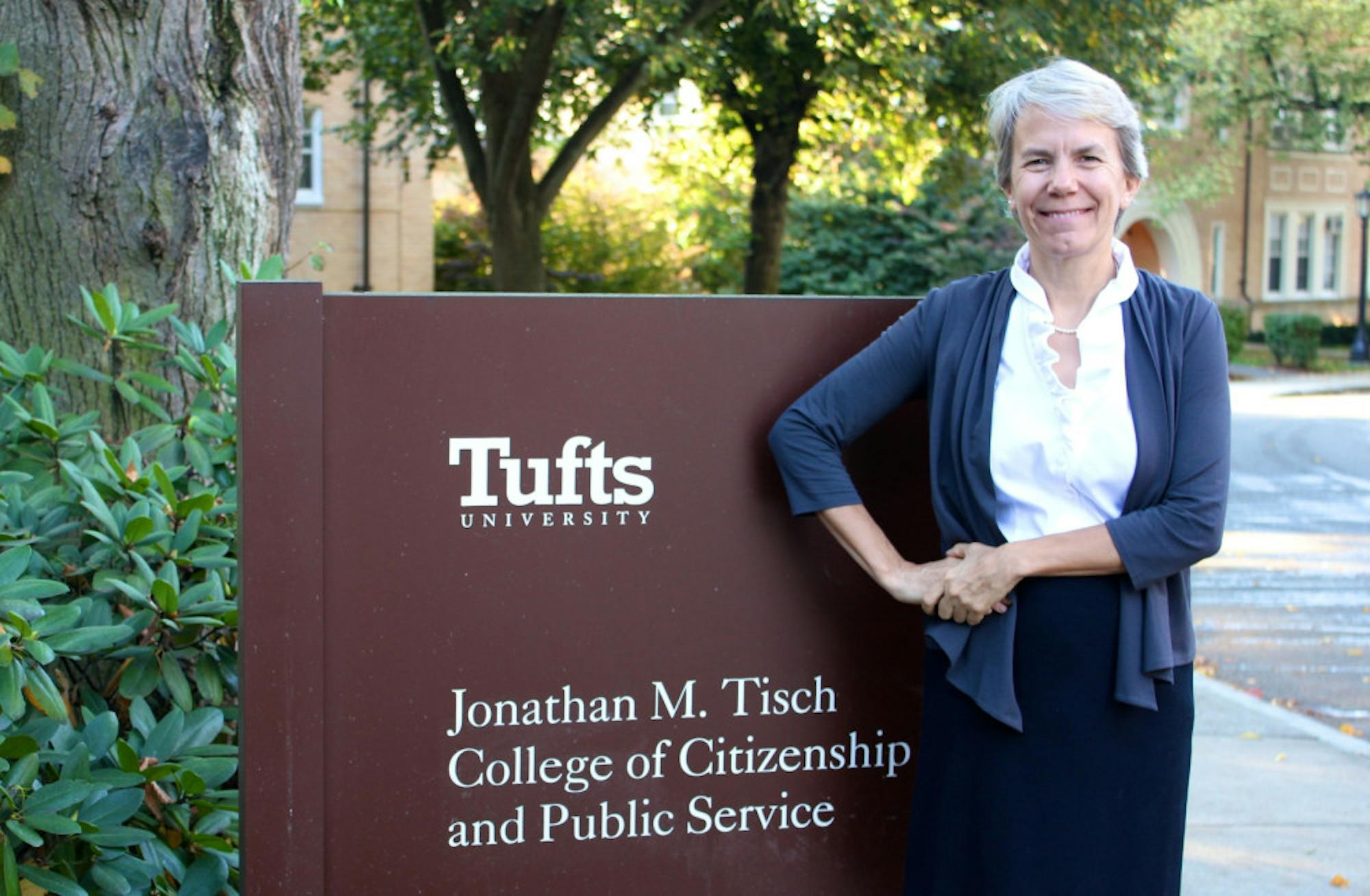Miriam Nelson, director of the John Hancock Research Center on Physical Activity, Nutrition, and Obesity Prevention and professor of nutrition at the Friedman School of Nutrition Science and Policy, was recently named the new associate dean of the Jonathan M. Tisch College of Citizenship and Public Service.
“She is a very accomplished scientist in the field of women’s health,” Alan Solomont, the Pierre and Pamela Omidyar dean of Tisch College, said. “Her academic interest is quite well-known, so we’re honored to have her as a part of Tisch College.”
Nelson said that she is excited for the new opportunity.
“I’m really thrilled about this new position," she said. "I love what the Tisch College is all about, so this was a really perfect timing for me. I have two daughters who have graduated from Tufts, so I breathe Jumbo. I feel very fortunate that I’ve been able to really do different things and really have an impact here.”
Nelson explained that she hopes to further Tisch College's achievements as an advocate for civic engagement, aiming to instill civic values in the students and staff on campus and beyond. She hopes to develop programs and curricula as well as extracurricular activities to teach students the knowledge, skills and values of active citizens.
“I’ve used civic engagement in my work, so my experiences around policy, civic engagement and public service will help to guide the Tisch College moving forward,” she said.
She also hopes to encourage faculty members to embed civic engagement ideas into their teaching methods, as well as promote Tisch College as an advocacy group for national issues related to civic engagement, civil renewal and democratic participation.
“I really see this as a team effort with the rest of the team at Tisch College to help develop the resources to envision all the partners we need,” Nelson said. “With a great foundation, I believe we can be among the most impactful organizations within the nation to create more prosperous and more engaged citizens. We can work with more democratic and civic institutions to make more viable communities. I think it’s a very exciting time.”
Along with her work at the John Hancock Research Center and the Friedman School, Nelson is a fellow at the American College of Sports Medicine and former vice chair of the Physical Activity Guidelines Advisory Committee. She is also the co-founder of the multi-sector childhood obesity prevention initiative ChildObesity180.
Nelson has also conducted multiple research projects, combining them with civic engagement to affect public policy. In 1989, she received a National Institutes of Health research grant to study how strength training may affect osteoporosis in middle-aged and older women.
“The study was published in the Journal of the American Medical Association," Nelson said. "It got a lot of press because it was [on] women of 50 and 60 lifting weights, and there was a lot of interest in how to take the research and apply it to the population.”
Nelson went on to write about her research findings in the first book in her Strong Women series, titled "Strong Women Stay Young," which became a New York Times bestseller. Since then, she has written nine more books which have been published in 14 languages and sold over one million copies.
“Her books are more than just published information, they’re read widely by a number of people,” Solomont said.
Nelson used her research to found the public health program Strong Women in 2001.The program now has chapters in 40 states.
Nelson said that, as she missed academia, she returned to Tufts in 2000 as associate professor at the Friedman School. While serving as associate dean at the Tisch College, she will continue to serve as a faculty member at the Friedman School.
“I will spend a sliver of my time there,” Nelson said, “Our effort is generally split between a number of different things. We teach, we work on three or four research projects and we provide service. I hope that around 15 to 20 percent of my effort will be spent working on research and on projects.”
Miriam Nelson becomes new associate dean of Tisch College

Miriam Nelson, the new associate dean of the Jonathan M. Tisch College of Citizenship and Public Service, is photographed outside the Tisch College at Tufts Medford Campus on Oct. 7th, 2014





